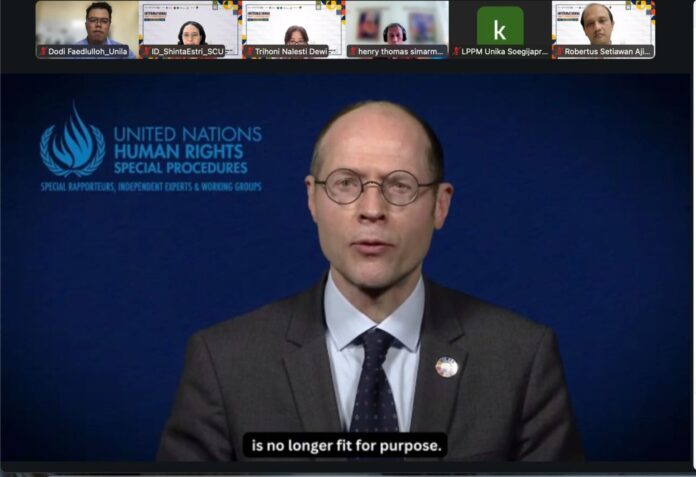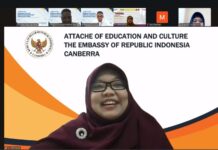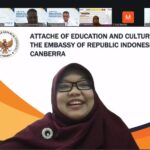(Unila): The Faculty of Social and Political Sciences (FISIP) of the University of Lampung (Unila) co-hosted an international mini-conference entitled “Agroforestry: Present Case and the Role of Higher Education Institutions,” which was held on November 11-12, 2025.
This event is part of Project Harvest (Higher Education Leadership on Agricultural and Food Rights for Environmental Sustainability), which involves various universities from Indonesia and abroad.
The mini conference was held online and attended by researchers, academics, and practitioners from various countries, such as Indonesia, Poland, Spain, Vietnam, Cambodia, Timor Leste, Colombia, and Canada.
FISIP Unila acted as a co-organizer alongside Soegijapranata Catholic University (SCU), Hasanuddin University, the Agricultural University in Krakow (Poland), and the University of Seville (Spain).
Dr. Robi Cahyadi Kurniawan, S.IP., M.A., in his speech representing the Dean of FISIP, said that FISIP Unila’s involvement in this activity was a tangible manifestation of academic contribution to highly relevant global issues.
“FISIP Unila’s involvement in Project Harvest not only strengthens international academic networks, but also reinforces the role of social sciences and public policy in supporting environmental sustainability and food security,” said Dr. Robi.
This mini-conference discussed the role of universities in developing agroforestry, namely integrated agricultural practices with sustainable forestry systems, as well as its relationship with community empowerment, cooperatives, and environmental justice.
From FISIP Unila, Dodi Faedlulloh, S.Sos., M.Si., a lecturer in Public Administration who is also the coordinator of the event from Unila, acted as the facilitator in the second session.
Dodi said that the theme of this conference is very relevant to the context of sustainable development in Indonesia. “Through Harvest, we want to emphasize the importance of synergy between universities, communities, and public policy in facing the challenges of climate change and food security,” explained Dodi.
“This is also a space for countries to learn from each other to see good practices in agroforestry at the local and global levels.”
This activity is expected to produce academic recommendations and collaborative research networks across countries, particularly in the context of developing transdisciplinary models between social sciences, agriculture, and the environment. [Gandhi Irawan]










